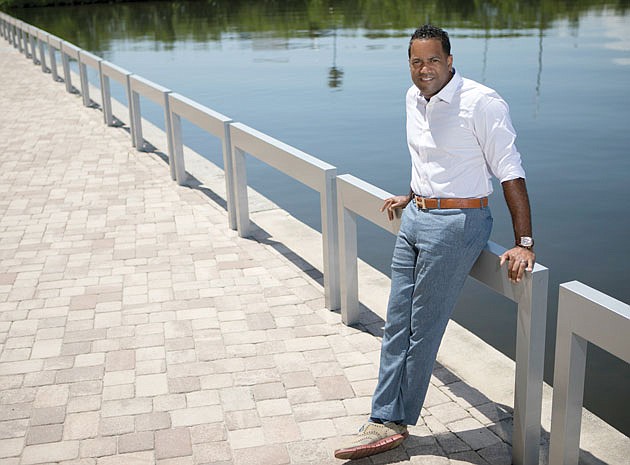- November 24, 2024
-
-
Loading

Loading

Bryan Chavis got into property management for a simple reason. It was a way to move out of his parents' house.
“When I found the job ad it said you got a free apartment,” recalls Chavis. “I was like wow, this is the gig.”
He started off in an entry-level position in the multifamily sector, eventually working his way up to managing large rental complexes. Then he invested in his own multifamily properties. The success he had there led to speaking gigs and his founding of the Landlord Academy, a Tampa-based online platform that offers educational and coaching resources for property management professionals.
In building his business, Chavis has also had to overcome a major obstacle. In 2012, he was diagnosed with a brain tumor. At the time he had 75 properties in his management business. But he liquidated the portfolio because he had no health insurance. “I had to sell everything to pay for treatment,” Chavis says.
Chavis isn't giving up. His second book, “The Landlord Entrepreneur,” was recently published, coming eight years after he wrote “Buy It, Rent It, Profit!”
“I'm rebuilding my portfolio now using the same fundamentals I teach in the book,” Chavis says. “If anything makes sense about my story, it proves that with what you learn in these books and the fundamentals we teach, you can lose everything but not lose everything. It's never as bad as it seems when you have the fundamentals to fall back on.”
Chavis recently spoke with the Business Observer about his career and his advice for others interested in getting property management. Edited excerpts:
What skills or traits does it take to be successful in property management?
Every skill you need in property management can be obtained and learned quite easily. The skills most people overlook are the entrepreneurial skills needed, like patience, diligence and discipline. If you have patience and discipline, you're going to succeed at most things. Where people get into trouble is they jump into real estate as real estate professionals and don't understand that they're entrepreneurs.
Any mistakes that you've made that stand out as good learning experiences?
I've made all of the mistakes, but I would say right now the biggest one is not having medical insurance. That falls back on not having a plan as an entrepreneur and covering all your bases. Who would have ever thought I would have had a brain tumor and lost my ability to walk and talk for a while? For years I never had so much as a cavity.
What are you planning next?
I'm looking to acquire investment property and am putting together a group of investors. I'm also starting Chavis Realty [a Tampa commercial real estate brokerage firm focused exclusively on the sale and management of multifamily investment properties]. Most agents live and breathe on home sales, but not everyone is fortunate enough to have guaranteed closings every month.
I'm trying to educate agents on a new way of doing business, because I question whether or not a real estate agent selling homes will even be in existence in another five or six years. There are all these platforms that allow you to list your home and find homebuyers, and that technology is going to be impacting real estate professionals.
Property management entrepreneur and author Bryan Chavis offers several tips to succeed in the field. The list includes:
• Focus on the fundamentals. “Look at 2008,” Chavis says. “People were buying not based on fundamentals but based on appreciation. And that's why we lost.”
• Pay attention to people, not just your real estate assets. “People pay rent, not buildings,” says Chavis. “You need to understand the demographics and psychographics of your tenants and apply those in your business.”
• Develop and use systems. “There's a system for everything — moving tenants in, dealing with them day to day,” says Chavis. “And once you set your systems up, enforce them. You cannot do one thing for one tenant and do things another way for another.
There have to be systems in place. If you don't have business systems, you don't have a business.”